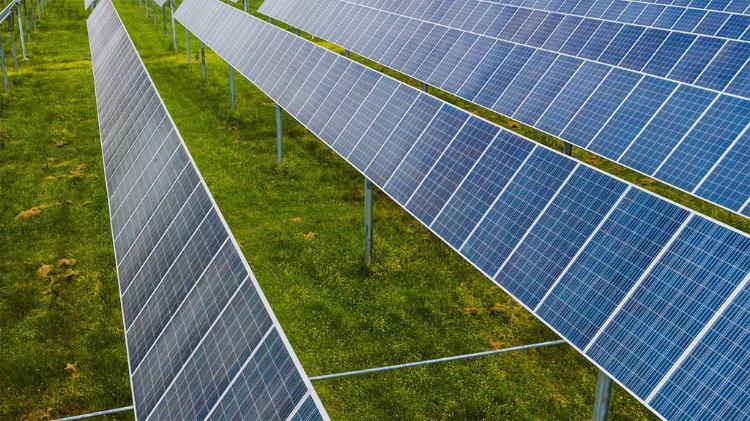This course will provide a practical understanding of the principles, practices and problems associated with grid integration of distributed energy resources.
- Substation Design
- Fundamentals of Distributed Energy Resources
- Integration of Renewable and Distributed Generation
- Application of the NER for Connection of Renewable Energy
- Introduction to PQ of Electrical Supply
- Introduction to Power Systems
- Advanced Quality of Electrical Supply
- Battery Energy Storage
- Application of Australian Standards for Management of Harmonics, Unbalance & Flicker
Integration of Renewable and Distributed Generation
Course Objectives
Renewable and distributed generation can provide an effective means to improve network efficiency, decrease reliance on high carbon emission generation, and allow consumers to increase responsibility for their own electricity needs. However, the rapidly increasing installation of distributed generation including solar and wind has increased the complexity and uncertainty in operation, control and protection of electricity networks.
This course will provide a practical understanding of the principles, practices and problems associated with grid integration of distributed energy resources. Topics covered during the course include the operation, control and protection of distributed generation-rich electricity distribution networks, network planning and reliability aspects for facilitating integration of these new generating technologies.
A focus of the course will be solar and wind power integration, as well as energy storage applications. Attendees will learn about fundamental aspects, operation, control and protection techniques, and methods of integration to improve supply quality and reliability for network operators and customers. The course will also include practical case studies of renewable energy integration problems and solutions from local industry experts and researchers.
Course benefits
This course has been designed to assist managers, utility specialists and technical staff who wish to advise customers on
renewable energy integration or who provide services to large clients. The course will also be useful for those who wish to
better understand aspects of network design, construction and maintenance techniques for maximising renewable energy
hosting capacity. By attending the course, you will gain knowledge and skills to assist you to:
- Appreciate the different renewable and distributed generation resources, their operation, and functional aspects
- Better understand the challenges and impacts related to integration of different renewable and distributed generation resources into electricity networks
- Gain knowledge of guidelines and standards for integration of these new energy resources into electricity grids
- Have a systematic understanding of the capabilities of battery energy storage systems and how they should be designed
- Develop an understanding of the definition of microgrids, how they operate and their potential benefits
Training Investment
The course investment provides for an inclusive industry related training package with course notes, lunches and morning and afternoon tea. The course fee is AUD$1770 including GST per person.
Participants may count course hours towards their continuing professional development requirements.
NOTE: Arrangements for accommodation are the responsibility of participants and costs are not included in the course fee.
NOTE: There is no guarantee that economic participation levels for this course can be achieved. Registrants will be notified 2 weeks prior to course if the course cannot proceed due to insufficient numbers. The program may be changed at any time due to unforeseen circumstances. If the course cannot proceed for any reason, UOW will not accept liability of whatsoever kind for expenses incurred by any person or corporation with the sole exception of the course investment, which will be refunded in full.
Speakers
- Mr Neil Brown
- Mr Sean Elphick
- Dr Jon Knott
- Professor Sarath Perera
- Associate Professor Duane Robinson
Honorary Fellow, University of Wollongong
Fellow, Institution of Engineers Australia
Senior Member, IEEE
Mr Neil Brown is an Honorary Fellow of the University of Wollongong, and a Fellow of the Institution of Engineers Australia and a Senior Member of IEEE. He has worked continuously in the electrical power industry in utilities, consulting and contracting firm. Mr Brown specialises in protection and control of generation, transmission and distribution systems, power system planning and power quality management.
Research Coordinator, Australian Power Quality & Reliability Centre
University of Wollongong
Mr Sean Elphick is the Research Coordinator with the Australian Power Quality & Reliability Centre. He has almost 20 years& experience in the areas of power quality monitoring and data analysis. Sean is a member of EL-042-03, the Standards Australia subcommittee responsible for development of the Australian Standard for grid-tie inverters, AS 4777.
Research Fellow, Australian Power Quality and Reliability Centre
University of Wollongong
Dr Jon Knott is a Research Fellow with the Australian Power Quality and Reliability Centre. Before joining the APQRC in 2020, he was Project Manager and Research Fellow on the $10.5M ARENA-funded Smart Sodium Storage System (S4) Project – a project aimed at developing and demonstrating sodium-ion batteries in renewable energy storage applications. His work at the APQRC focuses on integration of energy storage into renewable energy systems, energy management systems, and distributed infrastructure resilience.
Professor, School of Electrical, Computer and Telecommunications Engineering
University of Wollongong
Professor Sarath Perera was the Technical Director of the Australian Power Quality and Reliability Centre for the last 15 years. He is also a Professor in the School of Electrical, Computer and Telecommunications Engineering. Professor Perera has over 40 years’ experience in the areas of power quality, distribution system reliability, EMC and power system simulation techniques. He is the Chair of Standards Australia technical committee EL-034 'Power Quality'.
Technical Director, Australian Power Quality and Reliability Centre
University of Wollongong
Associate Professor Duane Robinson is the Technical Director of the Australian Power Quality and Reliability Centre. Associate Professor Robinson is also the Deputy Director Sustainable Buildings Research Centre and Associate Professor at the University of Wollongong. His research interests include modelling, analysis and control of power distribution systems, energy efficiency in networks and at point of utilisation, sustainable building practices, microgrids and distributed generation, power quality and mitigation techniques.
Integration of Renewable & Distributed Generation
This course will provide a practical understanding of the principles, practices and problems associated with grid integration of distributed energy resources.
Download Brochure